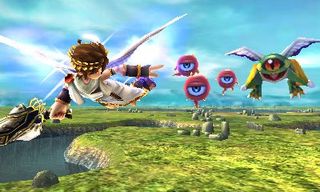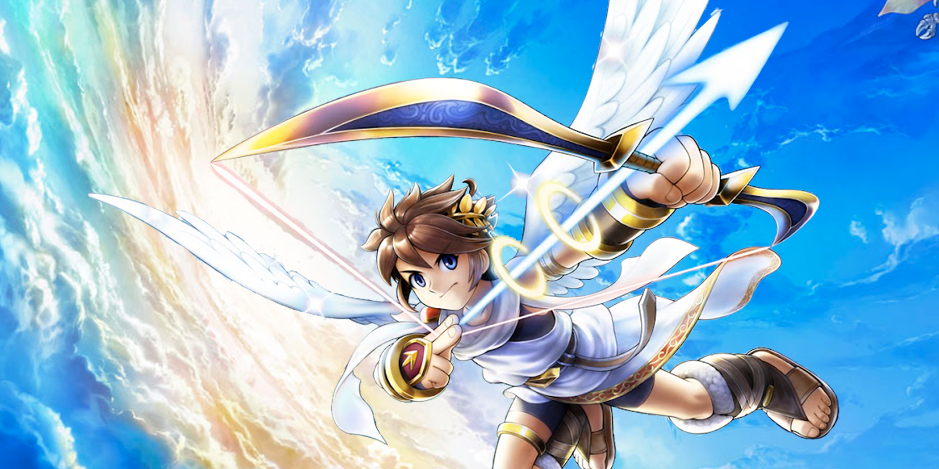12DOVE Verdict
Pros
- +
Gorgeous visuals that embrace stereoscopic 3D
- +
Uniquely fun controls that work great
- +
A hilariously localized script
Cons
- -
Controls are initially hard to grasp
- -
Some of the very difficult demands for unlocking extras
- -
The challenging search to find the perfect weapon
Why you can trust 12DOVE

Pre-release expectations are difficult for any game to live up to, let alone overcome. That's hard enough for a sequel that players have been waiting years for; just imagine how tough it would be if gamers waited decades. Kid Icarus: Uprising is the 3DS revival of a series Nintendo fans have been clamoring for since the 1991 Game Boy sequel. Fortunately, it has met those huge expectations.
Uprising picks up 25 years after the NES original, with winged hero Pit defending humanity from the hordes of the Underworld. Pit follows the lead of Palutena, the friendly Goddess of Light, to battle the newly reborn Medusa and an army filled with many of the same enemies from the original. There’s a comforting nostalgia to it all, but the narrative is filled with twists and turns. Familiarity is replaced with a fun unpredictability, as we were never sure where the setting would shift to next in the surprisingly hefty campaign.
Each stage of the 20-plus chapters in the game comes in three parts: flying, on-foot exploration, and boss battles. The gameplay blends complement the story’s shifting focus, and each has its strengths, some are stronger than others. And that’s largely due to a uniform control scheme that might feel initially strange, but is one we came to embrace.
Virtually every chapter begins with an autoscrolling flight stage that evokes high-flying classics like Star Fox and Space Harrier. The decision to control the targeting reticule with the touchscreen feels a tad strange at first, but you adapt to it, and Pit’s movements and firing feel natural upon first play. You can try some alternate control settings, but the default option ultimately works best.
The flying stages last five minutes each, and thanks in part to the game's autoscrolling nature, these are the most visually stunning parts. Additionally, the graphical flourishes and richly designed settings of Uprising serve as a showcase for the system’s 3D effects and enhance the fun factor. The flight portions of each level are uniquely enjoyable and despite the linearity, there’s sky-high replay value.
The flight controls are easy to grasp, but that same input felt initially unnatural for on-foot exploration. Mapping the camera and reticle to something as fiddly as a stylus will never feel completely normal when trying to traverse a dungeon, but we acclimated quickly enough after the first few stages. By the end of the game blasting away enemies and exploring each stage with the touchscreen feels totally natural. Even if you need some time to adapt to the nuanced mechanics, most of the on-foot levels are expertly designed to minimize your time spent fighting the controls. The different rooms and setting don’t demand much precision, while a majority of the limited platforming was made intentionally simple to complement the quirky controls.
The on-foot gameplay works even better in the boss battles, since the tricky camera seldom affects circular arena where you face the level's top nemesis. Each final encounter is cleverly implemented into the stage and feels markedly different from the prior stage, with a variety that further feeds into Uprising’s deep replayability. Whether it's the dragon Hewdraw, the fiery Twinbellows, or invaders from space, every boss battle makes for a grand finale.

More than anything, Kid Icarus: Uprising's dense replay value comes from its inventive approach to difficulty. You can’t lose at Uprising, but you'll never gain all the glory unless you up the Intensity. You bet hearts (the in-game currency) at the start of each chapter, risking more based on how high you set the bar. The more intense the stage, the more enemies and items appear, and should you falter and die, the game knocks down the Intensity a few notches until you can finish the stage (if you'd rather restart from the beginning with the same difficulty you can). It makes the game challenging without being too punishing, and adds real value to the hearts in the game.
More info
| Genre | Action |
| Description | The cult NES series returns after 20 years in a strange shooter/action hybrid. The controls aren't perfect, but it's one of the best (and most replayable) games on the 3DS. |
| Platform | "3DS" |
| US censor rating | "Everyone 10+" |
| UK censor rating | "" |
| Release date | 1 January 1970 (US), 1 January 1970 (UK) |
Henry Gilbert is a former 12DOVE Editor, having spent seven years at the site helping to navigate our readers through the PS3 and Xbox 360 generation. Henry is now following another passion of his besides video games, working as the producer and podcast cohost of the popular Talking Simpsons and What a Cartoon podcasts.

Guy Pearce reveals that he thinks he's "sh*t" in Christopher Nolan's Memento, as he reflects on its 25th anniversary: "I hate what I did"

Civilization 7 director tweaked diplomacy because the entire design team "ganged up" on him in multiplayer

Former GTA 5 and Red Dead Redemption 2 animator says GTA 6 is likely playable "all the way through" right now
